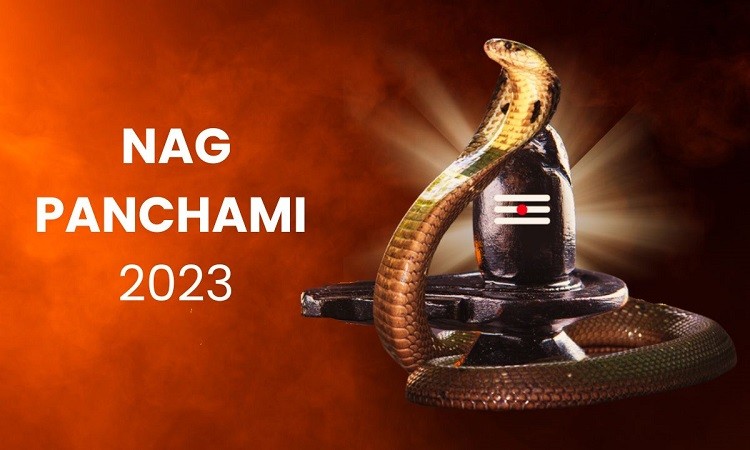
Naag Panchami 2023: Naag Panchami is set to celebrate on the 21st of August, 2023 in most parts of the country. Nagpanchami, a significant Hindu festival, is a day dedicated to the veneration of snakes, an important part of Indian mythology and culture. Celebrated on the fifth day of the bright half of the lunar month of Shravana, according to the Hindu calendar, Nagpanchami holds immense religious and cultural significance for Hindus, Jains, and Buddhists across India, Nepal, and other regions where these communities reside. In 2023, Nagpanchami is set to be observed on Monday, August 21st, as per the Amavasyant Calendar. The states of Maharashtra, Gujarat, and Tamil Nadu are particularly known for their vibrant celebrations of this unique festival.
Mythological and Cultural Significance: The reverence for snakes in Indian culture is deeply rooted in mythology. Snakes, often depicted as powerful and mystical creatures, are associated with various deities and are considered both protectors and destroyers. The snake deity, Nāga, finds mention in several Hindu epics, including the Mahabharata and Ramayana. Lord Vishnu is often depicted resting on the coiled body of a thousand-headed snake, Ananta Shesha, symbolizing the cosmic serpent and the universe's interconnectedness.
Nagpanchami also has historical significance. It is believed that on this day, Lord Krishna subdued the venomous serpent Kaliya and danced on its hood, thereby saving the villagers of Gokul from its menace. This act of Krishna is celebrated as a triumph over evil and is reenacted in various places during the festival.
Rituals and Observances: The observance of Nagpanchami involves a series of rituals that vary slightly across different regions. On this day, people wake up early, take a holy bath, and wear traditional attire. The main ritual involves the installation of snake images or idols made of silver, stone, or clay in homes and temples. These images are adorned with flowers, vermillion, and turmeric. Devotees offer milk, rice, sweets, and other traditional delicacies to the snake deities as a gesture of reverence.
In Maharashtra, Gujarat, and Tamil Nadu, the festival is celebrated with fervor. Devotees visit temples dedicated to Nāga deities and perform aarti (ritual of waving a lamp) while chanting hymns and mantras. Some people also create elaborate rangoli designs featuring snake motifs in front of their houses to symbolize the presence of the serpent gods.
Religious Unity: What makes Nagpanchami particularly interesting is its widespread observance across different religious communities. While Hindus predominantly celebrate this festival, it also holds significance for Jains and Buddhists. In Jainism, snakes are believed to be protectors of the Tirthankaras (spiritual teachers) and are revered for their role in protecting the meditating saints from natural elements. Similarly, in Buddhism, the Nāga is an important figure, often depicted as a half-human, half-serpent being, and is linked to the Buddha's enlightenment.
Symbolism and Modern Relevance: Nagpanchami goes beyond its religious connotations and carries symbolic significance. The snake, with its ability to shed its skin, is often seen as a symbol of transformation, regeneration, and renewal. This symbolism can be interpreted as a reminder for individuals to let go of their past burdens and emerge as better versions of themselves.
In modern times, Nagpanchami also highlights the importance of environmental conservation and the need to protect these creatures that play a vital role in maintaining the ecosystem's balance. The festival serves as an opportunity to raise awareness about the conservation of snake species and their habitats.
Nagpanchami, a festival that honors the enigmatic serpent deities, stands as a unique blend of mythology, culture, and spirituality. Its celebration on August 21, 2023, in Maharashtra, Gujarat, and Tamil Nadu underlines the diverse religious fabric of India. As devotees gather to offer their respects to these ancient beings, the festival continues to bridge the gap between different faiths, reminding us of the shared cultural heritage that unites us all. Furthermore, Nagpanchami's symbolism encourages us to embrace transformation and renewal, while also highlighting the importance of conserving the natural world and its inhabitants.